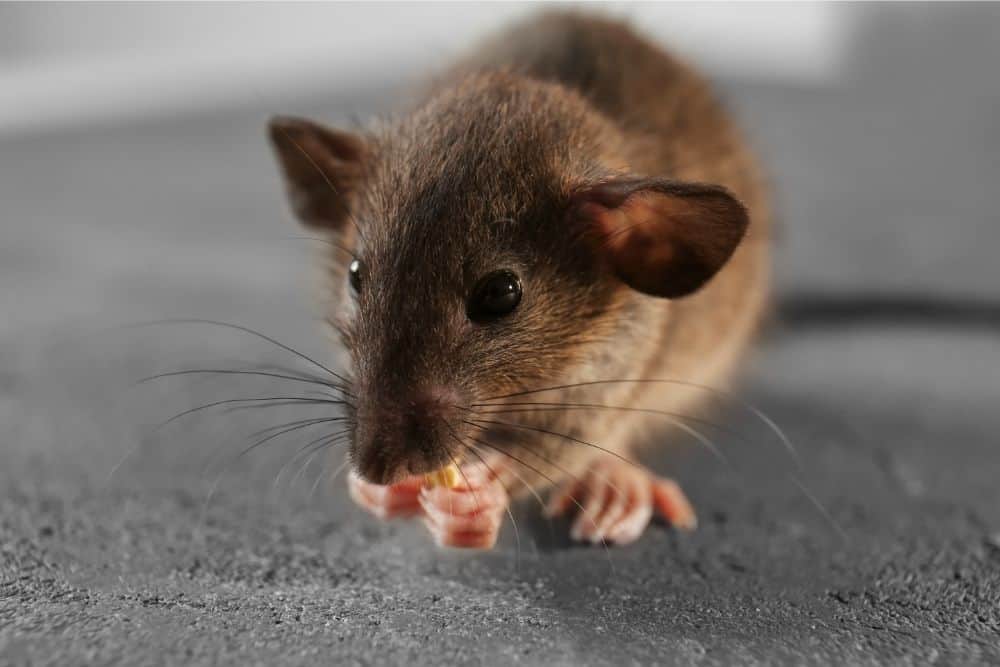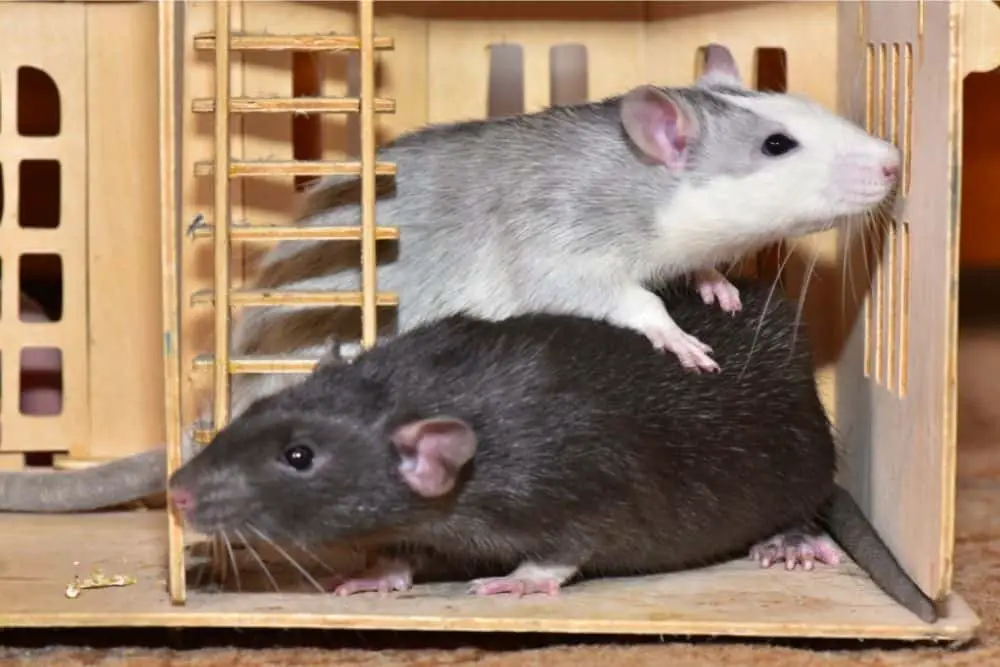Rats are notorious for eating everything. If you have ever had them in your home you will know that they will chew through just about anything in their frantic search for food.
They are very opportunistic and will eat at any chance they get, likely due to their inconsistent food supply.

Rats are omnivorous, meaning their diet must consist of both animal and plant food sources. Despite being opportunistic feeders, rats will typically stick to foods that they have eaten before.
This is because they lack the stomach muscles necessary to vomit, meaning they are unable to remove foods from their bodies if they begin to experience adverse reactions.
This means that their unlimited appetite will only be satiated with familiar foods, possibly a natural instinct to avoid poisoning.
This is why you will often notice rats in homes nibbling through packaging to get to the interior, but then leaving the food to spill across your shelf or floor.
Rats And Their Sense Of Smell
Rats are nocturnal scavengers who will search for food under the cover of night. They are quite social animals and tend to perform this scavenging activity in tight-knit family groups (or packs).
Rats have a phenomenal sense of smell for both good odors and odors rats hate, and this is how they locate food sources and stay out of danger. They have a specific genetic makeup that allows them to pick up different smells through their olfactory epithelium.
They also have another organ in their bodies known as the vomeronasal organ. This is specialized to pick up on chemicals and pheromones. It is completely integral to their parenting, courtship, and communication abilities.
This hugely specialized olfactory system means that rats have a highly developed sense of smell and can track scents from a large distance.
This is how the rats can smell the food inside your houses and know where to enter. The vomeronasal organ is also used to communicate with other rats to tell them where food is available and what the food source is.
How To Keep Rats Out Of Your Home
Rats bodies are nimble and can squeeze through gaps as small as ¼ inch wide. This means that even small cracks can allow rats to enter your home.
To ensure rats are kept out, we recommend sealing up any cracks in your walls, ceilings, foundations, and sidings. Apply weather stripping around all edges of doors and windows to close up the gaps.
You should store firewood at least 20 feet away from your house and trim any tree branches close by. Rats love to make homes in stacked wood.
If you have a rat problem that you cannot remediate, you may have no choice but to kill the rats as efficiently as possible.
In The Wild
In urban areas, rats will feed on whatever human food they can find, typically sourcing it from bins and dumpsters. The type of foods that they gravitate towards will vary according to the specific species of rat.
The two most common rat species in the US are Norway and Black rats. Norway rats are larger in size and eat more fats, sugars, and proteins.
Black rats will have a diet more focused on fruits and nuts. Wild diets for both species tend to consist primarily of rotting animals, fallen produce, and insects.
If you are attempting to lure rats into a trap, good food choices are dried fruit, chocolate, peanut butter, and bacon. Do not just place food into the traps.
Rats will try to sample the food before eating the bulk of it, so it is important to place some additional food around the outside of the trap too.
This allows them to test it and return for more, which is when you will be able to trap them.

As A Pet
The best food to make up the bulk of your pet rat’s diet is a commercially produced pellet food, designed specifically for rats. More and more online retailers are stocking up on all types of pet rat supplies. For instance, Chewy (link to Rat Products) has hundreds of products, including food; all for pet rats.
These have been created specifically to meet their nutritional needs and will provide the healthiest, most balanced nutrients for your furry friend.
You should supplement the pellet food with fresh fruit and vegetables each day to ensure your rats are getting sufficient vitamins and hydration.
As well as this, it is recommended to occasionally incorporate some cooked eggs, grains, and seeds into their diet. These foods should not be given in excess as too much can cause your rat to become obese.
You should give your rats fresh and clean water to drink every day. You would not like to drink old, stale water, and neither will they.
They need water to live just like us, and should not ever be left without access to a source of hydration. If you have more than one rat, you should have a separate water bottle for each animal.
Rats will need to be fed twice a day, in the morning and the evening. At feeding times you should remove any uneaten food and replace it with fresh food.
If you wish to incorporate new foods into your rats’ diet, this should be done slowly and gradually. This prevents digestive distress and aggression between the rats.
New foods can lead to aggression as they will make the rats smell different, potentially triggering territorial stress responses. Rats can also become very wary of new food sources.
You should not feed your rats foods that are high in fats or sugars often. They will love them and eat them with great speed, but this can cause rapid weight gain.
This is not an issue when fed occasionally as a treat, but by no means should this be a regular occurrence.
Foods NOT for Rats
Foods that are toxic to rats include onion, citrus, rhubarb, walnuts, grapes, chocolate, and raisins. They should never be fed to your rats.
Also on this list are green potatoes, blue cheese, and green bananas. These foods can all lead to kidney failure, especially in male rats who seem more susceptible to this condition.
Do Rats Eat Their Own Poop?
You may observe your rats eating their own feces. Your first response may be to stop them, but this is a very healthy and natural behavior that you are observing.
Eating fresh feces helps the rats to absorb additional vitamins and minerals that they need to remain healthy. If you stop them from doing this then they may become malnourished.
Conclusion
At the end of the day, rats are opportunistic eaters with a keen sense of smell, They have a wide diet, but prefer to stick to what they know.
